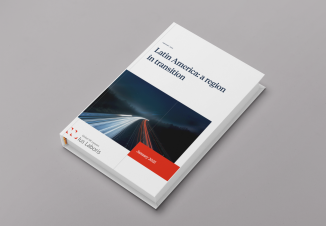
On 22 December 2018 a bill to amend and partially repeal various provisions of the Federal Labor Law was published in the Parliamentary Gazette.
The proposed amendments to the Federal Labor Law are described below.
1. The conciliation stage
The bill proposes the creation and operation of a Federal Conciliation and Labor Registration Center (the ‘Federal Conciliation Center’), which would take charge of conciliation proceedings and the registration of labour organisations and union contracts at federal level. At state level, Conciliation Centers (‘State Conciliation Centers’) would only be in charge of conciliation proceedings.
Employers and employees would be obliged to attend and complete a conciliation stage prior to filing any judicial action with a labour court.
The conciliation stage would consist of a mandatory single hearing to be held on a specific date and time. Any conciliatory negotiations would be held at times mutually agreed upon by the parties.
Any settlement agreement reached during the conciliation stage at the Federal Conciliation Center or at any State Conciliation Center would be considered res judicata (already judged) and would be enforceable in any case of breach.
No conciliation stage would need to be completed in any of the following cases: workplace discrimination claims, work during pregnancy, the appointment of beneficiaries on the death of any employee, social security benefits claims for occupational hazards and any other social security claim, any violation of freedom of association or effective collective bargaining rights or any labour trafficking or child labour claims.
2. Employment law and the courts
The Constitutional amendment on employment law judicial proceedings that became effective on 24 February 2017 has been incorporated into the bill. It provided that after that date, any disputes between employers and employees would be settled by labour courts assigned either to the federal or to any state judicial branch of government. The existing Conciliation and Arbitration Labor Boards would disappear and be replaced by labour courts.
3. Freedom of association and effective collective bargaining rights
The bill expressly acknowledges that union members will be entitled to exercise the following rights relating to free affiliation and participation in labour organisations:
4. Union contracts
The bill implements new measures for union contracts, ensuring the exercise of free association and effective collective bargaining rights.
The execution, filing and registration of a new union contract and any salary and benefit adjustments would be conditional upon securing a so-called ‘union certification record’.
The union certification record would be a legal prerequisite for the validity of a union contract, constituting evidence that the union is the exclusive bargaining agent for a majority of employees.
A union certification record issued by the Federal Conciliation Center should accompany any list of employees’ demands and notice of intention to strike. It is also needed whenever a petition to enter into a union contract or an industry-wide labour agreement or a salary or benefit adjustment revision is filed.
To comply with the constitutional amendments and Mexico’s international commitments on collective bargaining, all existing union contracts are to be subject to revision at least once during the four-year period following the effective date of the proposed amendments. Any revised union contract is to be filed with the Federal Conciliation Center. If a union contract is not subject to revision within such period, the union contract will be deemed terminated.
5. New rules of procedure for labour disputes
The bill introduces a new set of rules for labour dispute procedures, with a written stage in addition to the oral hearings expediting the process and providing the parties with procedural transparency and speed.
The procedure will begin with the filing of a complaint accompanied by all evidence supporting the alleged facts and the relief claimed by the plaintiff. The labour court will serve a summons (including the plaintiff´s complaint and evidence) on the defendant, and the defendant will be required to answer the complaint and offer evidence within 15 days following the date of service. After a time-limited exchange of written pleadings, the court would set a date and time for a preliminary hearing at which the matters at issue would be determined, together with the admissible evidence offered by the parties and the steps to be followed for preparing the production of evidence.
Then, the court would set a new date and time for a trial hearing, at which the admissible evidence would be presented; if possible, the trial would be completed in a single hearing.
After all the evidence has been presented by the parties the court will declare that the trial has been completed and prepare for final judgment.
6. Notification and communication system between the court and the Conciliation Center or between different labour courts.
The bill proposes the introduction of a digital notification and communications system to expedite procedure. The Conciliation Center and the court would have a digital platform for notifications. The court would assign an electronic inbox to the parties and, subject to their consent, any subsequent notifications would be posted by using this inbox.
In addition, the court would have the technological means to facilitate the processing of letters of request and any other court actions.
7. New rules of procedure for particular types of evidence.
The bill specifically modifies the procedure for hearing testimony of parties to an action (‘prueba confessional’) or any third-party testimony (‘prueba testimonial’).
For the testimony of a party to the action, the court or the opposing party can pose open questions, provided they relate to the matters at issue, so as to establish the facts.
For third party testimony, both direct and cross-examination would not be subject to any special rules, although certain guidelines are provided for objecting to specific questions.
8. New obligations for employers.
There is a proposal in the bill to impose an obligation on employers to implement a protocol or internal policy to prevent and handle violence and sexual harassment claims, to ensure the work environment is free from discrimination and violence. Employers would also have a second obligation to provide all employees with a copy of the union contract, as amended.
9. Printed or electronic notification of pay and benefits
The bill provides that employers may provide employees with receipts for salary and benefits payments, either in printed form or by any other means. This implies that digital receipts for tax purposes (CFDI for their Spanish acronym) may replace printed receipts, if there is prior agreement between the employer and the employee. In the event of a court action these can constitute prima facie evidence that the employee was paid.
10. Beneficiaries of a deceased employee or an employee who is absent as a result of a criminal act such as kidnapping
There will be no obligation to complete an investigation into economic dependency in any of the following cases (as there is a legal presumption in their favour): beneficiaries of a deceased or absent employee, including the surviving spouse, minor children under 18 or children above 18 with a disability above 50%, or children up to 25 years of age who are still studying, ascendants, a common-law husband or wife, or a partner with whom the employee has had a child.
An investigation into economic dependency does have to be completed when the death of an employee is due to a work accident.
11. Social security disputes
It is not necessary to complete a conciliation process (or have a record of such a process) to file a social security benefit complaint in the following cases: the granting of benefits, either in cash or in kind, from the various types of insurance covered by the social security mandatory system, or benefits payable by the National Workers’ Housing Fund Institute, or by any retirement fund management institution (AFORE for its Spanish acronym).
12. Unit of measurement for fines and compensation.
The minimum wage would be replaced by the unit of measurement (UMA for its Spanish acronym), to be used to determine the amount of any fines, or the amount of compensation payable to employees as a result of introduction of new machinery in the workplace, or the permanent disability or death of an employee.
Timing
In accordance with the transitional provisions of the bill, these amendments to the Federal Labor Law would become effective on the date immediately following its publication in the Federal Official Gazette. This is likely to take place by the end of the first quarter of 2019.
Within six months of publication of the amendments, the Federal Congress should issue the Organic Law for the Federal Conciliation Center. Together with the state legislatures, the Federal Congress should also allocate the necessary funds for implementing the amendments to the new labour law justice system.
The second transitory article of the bill provides that the registration of union contracts and labour organisations with the Federal Conciliation Center must start within two years from the effective date of the amendments.
However, the sixth transitory article provides that the Federal Conciliation Center will start conciliation stage proceedings simultaneously with the date on which the new labour courts open for business, without exceeding four years from the effective date of the amendments.
State Conciliation Centers and state labour courts must be open for business within three years from the effective date of the amendments.
Any labour law action currently being processed with or by the Department of Labor and/or any Conciliation and Arbitration Board (federal or state) should be completed in accordance with the rules of procedure under the Federal Labor Law in effect at the time the amendments become effective.
Any individual, collective or registration action filed after the amendments become effective would be handled by a Conciliation and Arbitration Board, either federal or state, until the Federal Conciliation Center, the State Conciliation Centers and the new labor courts start working, according to the terms in the transitory articles.

